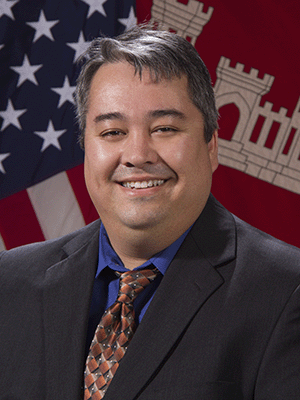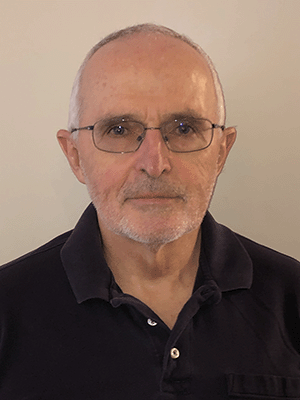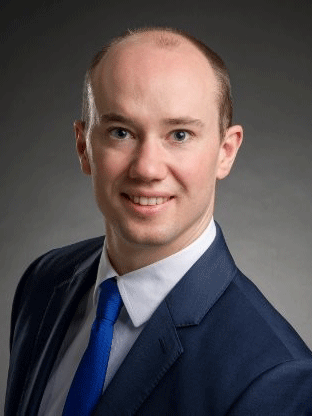Three Adjunct Faculty Join IIT in 2020
July 27, 2020
The IIT is pleased to welcome three new adjunct faculty members to our ranks in 2020 - Dr. Lyle Burgoon, Dr. Rory Conolly, and Dr. Peer Karmaus.
 Dr. Lyle Burgoon received his A.B. in Pre-Medicine and Biology from Augustana College in 1999. In 2005, he received his Ph.D. in Pharmacology and Toxicology and Environmental Toxicology from Michigan State University. Burgoon was mentored by Dr. Timothy Zacharewski during his time as an EITS graduate student. Burgoon also completed his postdoctoral studies in Biochemistry and Molecular Biology at MSU. Today, Burgoon is the Director at the Center for Existential Threat Analysis and Leader of Bioinformatics and Computational Toxicology at the US Army Engineer Research and Development Center.
Dr. Lyle Burgoon received his A.B. in Pre-Medicine and Biology from Augustana College in 1999. In 2005, he received his Ph.D. in Pharmacology and Toxicology and Environmental Toxicology from Michigan State University. Burgoon was mentored by Dr. Timothy Zacharewski during his time as an EITS graduate student. Burgoon also completed his postdoctoral studies in Biochemistry and Molecular Biology at MSU. Today, Burgoon is the Director at the Center for Existential Threat Analysis and Leader of Bioinformatics and Computational Toxicology at the US Army Engineer Research and Development Center.
Dr. Burgoon's primary research interests focus on: 1) applied toxicology and risk assessment in the military environment (toxic industrial chemicals, CBRNE (chemical, biological, radiological, nuclear, and high yield explosive) weapons of mass destruction), 2) applied toxicology and risk assessment of civilian accidental releases and mass casualty events, 3) predictive computational toxicology, physiologically-based pharmacokinetic modeling (PBPK) and artificial intelligence, and 4) applied biostatistics in toxicology and chemical/drug safety assessment (i.e., metascience applied to toxicology). Dr. Burgoon's research programs are funded by the US Defense Threat Reduction Agency, the Office of the Secretary of Defense, and the US Army Futures Command. Dr. Burgoon has recently started a research program focused on metascience applied to toxicology -- specifically, studying how defects in study designs, psuedoreplication and sample bias are contributing to the replication crisis in toxicology, and how these defects impact safety/risk assessments, policies, and drug/chemical regulations.
 Dr. Rory Conolly has been a long time collaborator with the IIT, having served on the Computational Core of the MSU Superfund project for many years. Conolly was born in London, England and raised in Canada and the United States. He received a bachelor’s degree in biology from Harvard College in 1972, a doctorate in physiology/toxicology from the Harvard School of Public Health in 1978 and spent a post-doctoral year at the Central Toxicology Laboratory of Imperial Chemical Industries in Cheshire, England. He was a member of the Toxicology Faculty at The University of Michigan School of Public Health from 1979 through 1986 and worked with the U.S. Air Force Toxic Hazards Research Division, Wright-Patterson Air Force Base, Ohio from 1986 until 1989. In 1989, Dr. Conolly joined the Chemical Industry Institute of Toxicology (CIIT) and worked there until 2005, when he joined the U.S. EPA. Dr. Conolly retired from the EPA in 2020 and then joined Ramboll Environ as a part-time Senior Management Consultant.
Dr. Rory Conolly has been a long time collaborator with the IIT, having served on the Computational Core of the MSU Superfund project for many years. Conolly was born in London, England and raised in Canada and the United States. He received a bachelor’s degree in biology from Harvard College in 1972, a doctorate in physiology/toxicology from the Harvard School of Public Health in 1978 and spent a post-doctoral year at the Central Toxicology Laboratory of Imperial Chemical Industries in Cheshire, England. He was a member of the Toxicology Faculty at The University of Michigan School of Public Health from 1979 through 1986 and worked with the U.S. Air Force Toxic Hazards Research Division, Wright-Patterson Air Force Base, Ohio from 1986 until 1989. In 1989, Dr. Conolly joined the Chemical Industry Institute of Toxicology (CIIT) and worked there until 2005, when he joined the U.S. EPA. Dr. Conolly retired from the EPA in 2020 and then joined Ramboll Environ as a part-time Senior Management Consultant.
Conolly’s research interests include: (1) biological mechanisms of the dose‑response and time-course behaviors that determine how exposures to toxicants result in adverse health effects; (2) the use of biologically based computational modeling to study these mechanisms; and (3) the application of these models to quantitative dose-response assessment. Dr. Conolly has extensive experience in physiologically based pharmacokinetic (PBPK) modeling and in computational modeling of multistate carcinogenesis. An important ancillary interest is the identification of experimental designs that efficiently support development of computational models of toxicological mechanisms. He has about 140 peer-reviewed publications.
 Dr. Peer Karmaus received his B.S. in Biochemistry from the Lyman Briggs School of Science at Michigan State University in 2005. In 2011, he received his Ph.D. in Cell and Molecular Biology and Integrative Toxicology from MSU as well. Karmaus was mentored by Dr. Norbert Kaminski during his time as an EITS graduate student. Today, Karmaus is a staff scientist at the National Institue of Environmental Health Sciences.
Dr. Peer Karmaus received his B.S. in Biochemistry from the Lyman Briggs School of Science at Michigan State University in 2005. In 2011, he received his Ph.D. in Cell and Molecular Biology and Integrative Toxicology from MSU as well. Karmaus was mentored by Dr. Norbert Kaminski during his time as an EITS graduate student. Today, Karmaus is a staff scientist at the National Institue of Environmental Health Sciences.
Karmaus’ research focuses on how metabolism in innate and adaptive immune cells dictates cell fate and function. Of particular interest is the idea that different intracellular signaling pathways instruct anabolic, catabolic, and biosynthetic processes to affect cell fate decisions and how in turn these metabolites (including xenobiotics) affect cell signaling and cell fate. One of the major metabolic pathways involved in cellular metabolic changes is the biosynthesis and metabolism of cholesterol. Metabolism by immune cells (immunometabolism) and control thereof by changes in cholesterol metabolism affect the outcome of anti-pathogen, anti-tumor, and anti-self (autoimmune and tolerogenic) immune reactions and thus plays a key role in understanding the immune system.
Karmaus’ current research involves signaling pathways, metabolic changes, and cellular features that define cell fate. Within this area, the focus is on three overarching ideas: 1. How a cell’s environment affects its ability to support cell fate decisions; 2. How signaling pathways connect with a cell’s ability to sense metabolite/energy levels and how this mechanism may be perturbed by the availability of metabolites; 3. How heterogeneity within seemingly homogenous cell populations contributes to cell fate and function.

